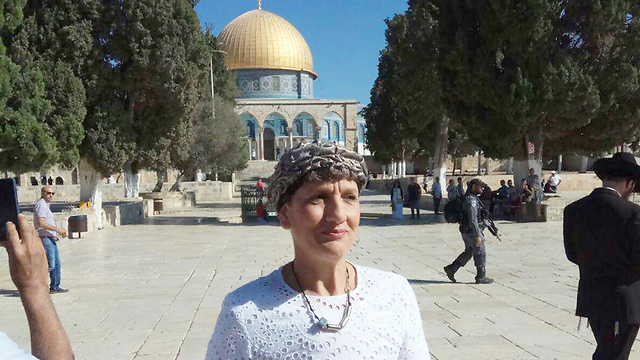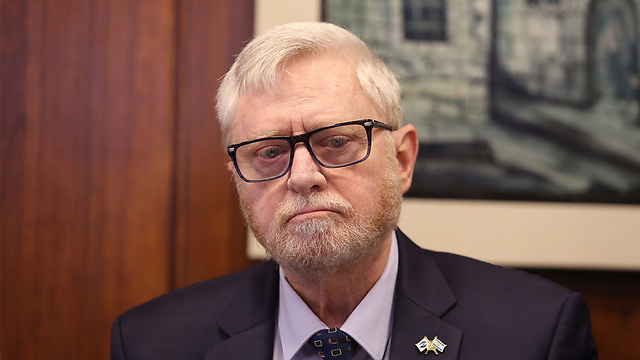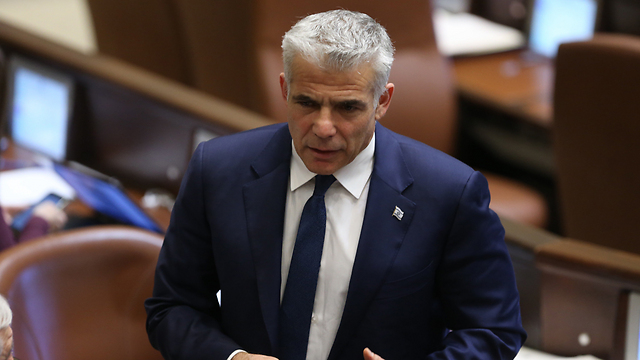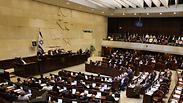

Knesset passes Jerusalem, primary campaign financing laws
Lawmakers passes Unified Jerusalem Law, amending Basic Law so any change to capital will require 80 MK majority, to apply in cases of political or peace agreements; primary campaign financing law provides MKs, ministers, deputy ministers running in primaries NIS 300,000 in financing from state.
A long night of legislation in the Knesset concluded favorably for the coalition Monday, with the passage of two bills: the "Unified Jerusalem" amendment and a primary financing law.
The "Unified Jerusalem" law was, in actuality, an amendment to Basic Law: Jerusalem, sponsored by Education Minister Naftali Bennett and MK Shuli Mualem (Bayit Yehudi), requiring that any decision on Jerusalem be made an 80 MK majority, even ones made as part of a prospective peace agreement.
The second law, which passed its second and third readings late Monday, is a primaries financing law stipulating a candidate running in the primaries of a party will be entitled to receive NIS 300,000 in campaign financing from the state.
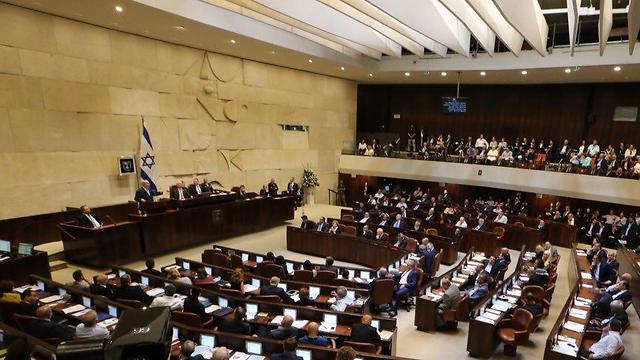
The Knesset passed the "Unified Jerusalem" amendment with 64 MKs voting in favor, 51 opposed and one abstention. MK Ofer Shelah (Yesh Atid) decided to abstain, despite objecting to the bill.
MK Mualem took to the podium to welcome support of her amendment. Mualem quoted the prophet Zechariah in her speech, saying "There shall yet old men and old women dwell in the streets of Jerusalem, and every man with his staff in his hand for very age."
Education Minister Bennett also welcomed the law's passage, saying east Jerusalem will remain under Israeli control. "We've assured Jerusalem's unity. The law safeguards Jerusalem, whose status will now not be changed unless an enormous 80 MK majority is reached. The Mount of Olives, the Old City, the Temple Mount and the City of David will remain ours forever more. No political stunts will rip our capital asunder," Bennett tweeted.
Chairman of the Constitution, Law and Justice Committee Nissan Slomiansky (Bayit Yehudi) presented the law and noted that while any decision on Jerusalem will now need an 80 MK majority, the law itself could be changed with 61 MKs in favor.
With the law's passage, an article was changed in Basic Law: Jerusalem that stated the city's municipal territory could not be altered. Removing any areas from Jerusalem's sovereignty and instating them as a separate authority will be possible, but Israeli sovereignty will still apply to them, as will the demand for an 80 MK majority.
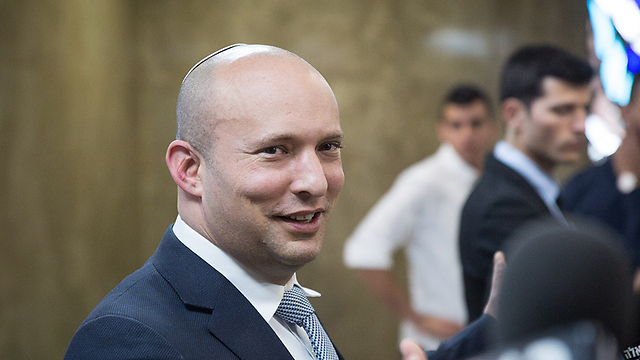
When the bill passed through the Ministerial Legislative Committee, Bennett said, "Our capital city was saved twice from the catastrophe of partition efforts led by (former prime ministers) Ehud Olmert and Ehud Barak, when they held a fleeting Knesset majority. That is now over. The Unified Jerusalem Law will prevent any possibility of partition, will strengthen our international standing and prevent future pressures on Israel."
MK Mualem echoed his sentiments, saying, "Considering past experience, with two prime ministers attempting to cut up Jerusalem as part of a dangerous political agreement, such harm to the capital of Israel must be prevented before it comes to pass."
On far more earthly matters, the Knesset also approved a new primary financing law in second and third readings, sponsored by Coalition Chairman MK David Amsalem (Likud), according to which any candidate running in primaries will receive the aforementioned NIS 300,000, costing the state NIS 20-25 million.
The bill—which needed a 61 MK majority—passed with 62 MKs in favor and 52 opposed. Its approved text excluded an article included in the original draft that also provided NIS 50,000 to parties holding no primaries.
Primary candidates eligible for the grant, the law says, are elected officials who are not at the head of local authorities—that is, only MKs, ministers and deputy ministers.
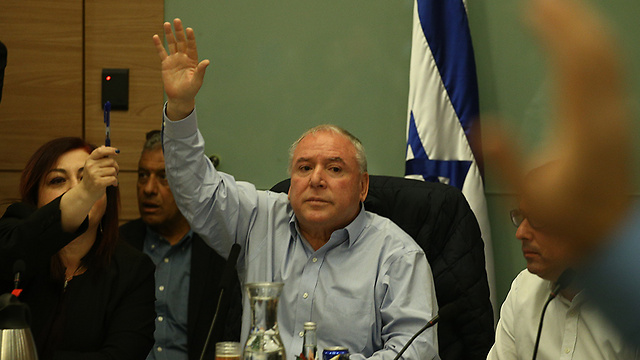
Anyone else choosing to run in primaries will be able to apply for a loan or raise contributions on their own. Regardless, both the grant and loans will only be given to candidates running in the primaries, as opposed to those whose position had been secured.
The law also requires primary candidates who received the grant to return any funds left over at the campaign's conclusion to the state. The conditions for receiving the grant include supervision on how it's spent and receipt of funds only with approval for primary contention.
A demand for a full financial disclosure report was added to the law at the state comptroller's request. The burden of the report will also fall to candidates who have dropped out of the race. A penal article was also amended determining the use of the public funds for any purpose other than a primary campaign will constitute a criminal offense.
The law further stipulated parties will be required to divulge information to the state comptroller and information registrar, as the loans will be based on data the parties possess and they are required by law to divulge it.
Candidates who are not elected officials at the time of their primary contention will also be eligible to receive the grant, so long as they are elected to the Knesset. In addition, while the grant is for primary campaign financing, candidates may also use it to finance pre-primaries expenditures.
Financing under the new law will be applicable only to parties fulfilling three conditions: the party has a membership of at least 5,000, most of the party's members participate in its primaries and the primaries are held near general elections—up to six months before the elections or from the date the Knesset is dispersed.
In his presentation of the bill, MK Amsalem said, "MKs are not supposed to accept contributions from anyone, I consider them bribes. Some people contribute as an investment. It's one of the most corrupt things about this country, and it's all legal. You're accepting money—not cigars, money—to be elected to a job. How does that make sense? How is it even legal?
"I'm assuming even otherwise decent and honest people will push themselves to the legal limits to acquiesce to requests from those benefactors. Primaries are the worst possible method, considering. I think this bill will clean Israeli politics of at least a little corruption."
Yesh Atid Chairman Yair Lapid, who objected to the law, said, "I want to congratulate you on your honesty, on saying—on the record—you and your party mates were selected through a process that by your own admission is entirely corrupt. And we call all see the results (of that process).
"The solution you're offering to this corrupt method is taking money from all Israeli citizens to give each Likud MK NIS 300,000. Suppose we give them that money. Where does it go? Will it go to something other than what money is spent on today? It'll just go to all the same maladies of this corrupt system."














